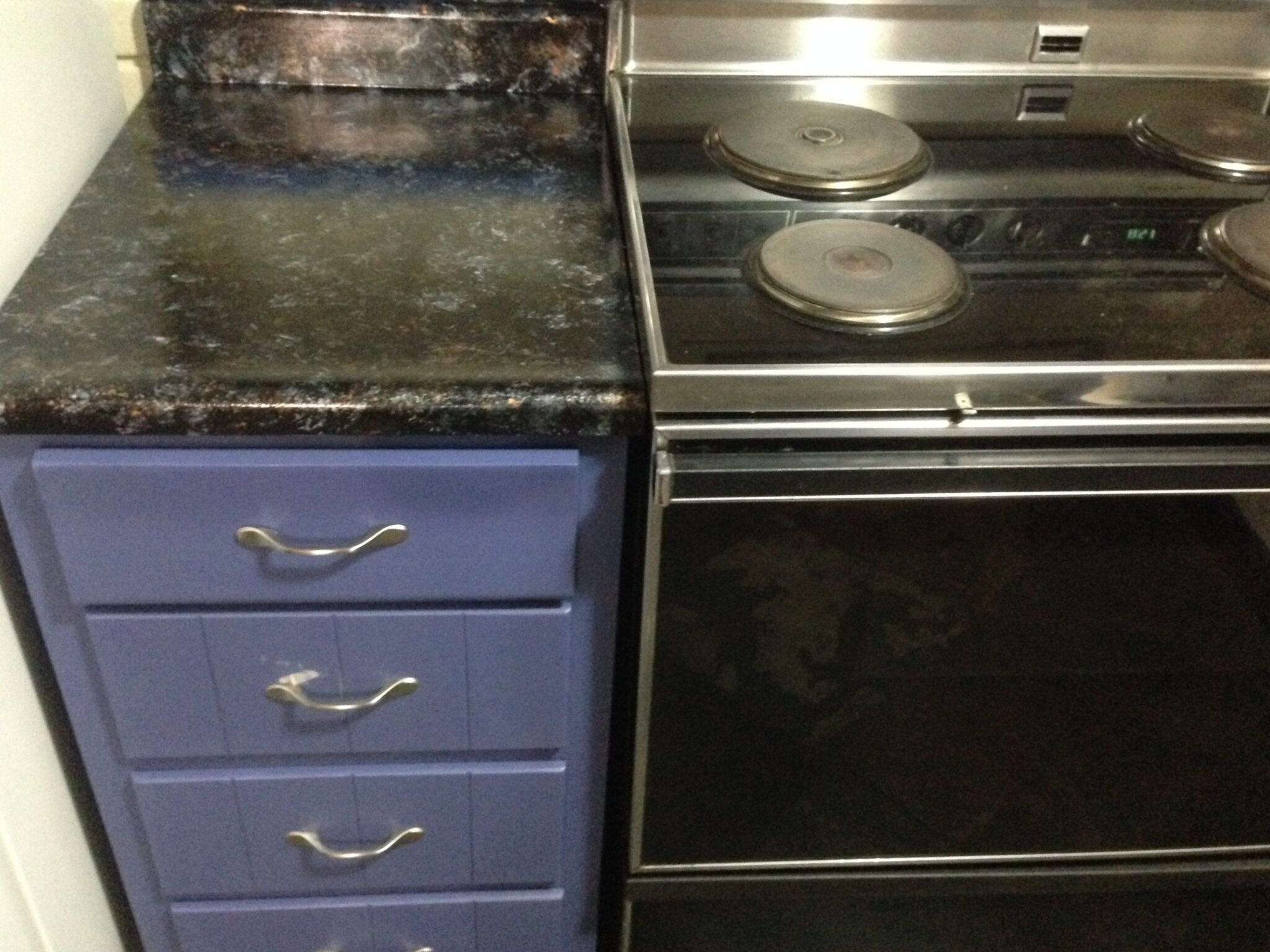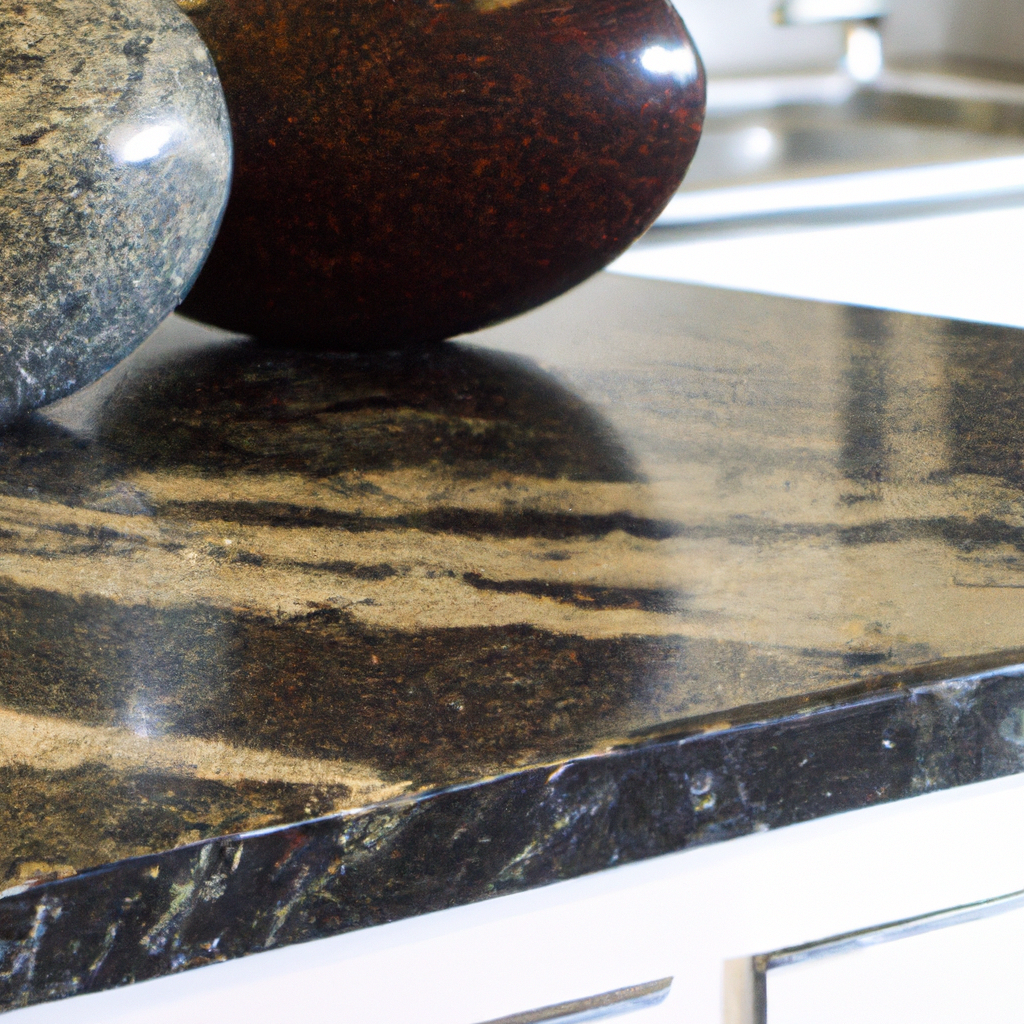Key Takeaway:
- Granite is a natural stone and is considered more eco-friendly than engineered stone because it is naturally-occurring and does not require high levels of energy to produce. However, sourcing and shipping granite from far away can cancel out its eco-friendliness.
- Engineered stone, also known as quartz, is made by combining natural quartz with resins and pigments. It requires less energy to produce than granite and is often made using recycled materials. However, the resins and pigments may contain chemicals that are harmful to the environment and some engineered stone contains non-renewable materials.
- When choosing between granite and engineered stone countertops, consider factors such as where the materials were sourced, how they were produced, and their overall environmental impact. Additionally, consider the durability and longevity of the materials to minimize waste and the need for replacement.
Worried 'bout the eco-impact of your kitchen countertops? Look into comparing granite & engineered stone! Get a better understanding of their eco-friendliness. Then you can make a better decision.
Introduction
Considering countertop options for your kitchen? Check out eco-friendliness! Two popular choices are granite and engineered stone. They offer unique features and benefits.
Granite is natural and widely available in different colors and textures. It's heat-resistant and easy to clean. But, it can be prone to chips and damages if not maintained.
Engineered stone is sustainable; made of quartz, paper, fibreboard, melamine resins, and formaldehyde. It's non-porous, bacteria resistant, and comes in solid or speckled patterns. You can custom arrange it, wipe it clean, and make a professional-looking design statement.
Both materials have performance features, prices, durability, variety, and textured finishes. Choose an experienced custom surface fabricator and installer for quality. The decision comes down to your needs and preferences.
Understanding Granite and Engineered Stone Countertops
When it comes to kitchen countertops, granite and engineered stone are two popular options. Granite is a natural igneous rock material, while engineered stone is a manufactured blend of crushed stone, pigments, and resins.
Environmentally-friendly factors? Granite has a carbon footprint, yet is durable and long-lasting. It can also be recycled. Engineered stone is made with recycled content and designed to be eco-friendly. It's user-friendly, cost-efficient, but not recyclable.
Heat, water, scratches and stains, and bacteria resistance? Both are heat and waterproof, but engineered stone is more resistant to scratches and stains. Bacteria-resistance is similarly effective.
Choose based on personal preferences, budget, and environmental concerns. Consult with a business or interior designer for custom arrangements, antique textures, solid patterns, mirror-like appearances, easy-to-clean surfaces, and a low carbon footprint.
Differences between Granite and Engineered Stone Countertops
Granite and engineered stone countertops have some significant differences. Granite is a natural material quarried and polished to fit as a countertop. It's eco-friendly and the quarrying process is sustainable.
Engineered stone countertops are manufactured from crushed stone and resin. They can be made from recycled materials and are easy to clean, scratch-resistant, heatproof and stain-resistant. Plus, the design patterns are special, as crushed stone and pigments are mixed during production.
The manufacturing process of engineered stone has a large environmental impact. Additionally, if it cracks or chips, it cannot be repaired, and the resin can release VOCs, affecting air quality.
In conclusion, both granite and engineered stone countertops are good choices for kitchens. Take into consideration their environmental impact, maintenance, durability and cost before making your decision.

Environmental Impact of Granite and Engineered Stone Countertops
As we become more environmentally conscious, the debate over the eco-friendliness of kitchen countertops has emerged. This section will examine the environmental impact of two popular countertop options: granite and engineered stone. Throughout the sub-sections, we'll explore the extraction and manufacturing processes, transportation, installation and maintenance, as well as the ultimate lifespan and disposal of both options. By understanding the environmental impact of these materials, readers can make informed decisions about which option aligns best with their eco-friendly values.
Extraction and Manufacturing Process
Extracting and making granite and engineered stone countertops both have a huge effect on the environment. Granite may be thought of as eco-friendly due to its natural material and sustainable harvesting. But, the production process uses up lots of energy and creates a lot of waste. Engineered stone countertops use recycled material in the manufacturing process and have surfaces that are easy to clean and bacteria-resistant. However, the production and transport of these countertops can cause pollution.
It's essential to think about the environmental effect of your choice of countertop material before deciding. For a more eco-friendly option, you could consider other materials such as ceramic tile, laminates, solid surface, stainless steel, or terrazzo. These have a lesser environmental effect compared to granite or engineered stone countertops.
Fun Fact: Manufacturing one ton of granite countertops releases 1.25 tons of carbon dioxide! Be aware of using eco-friendly materials for your kitchen countertop and make a knowledgeable choice for a safer and healthier home.
Transportation and Installation
Transport and install can be key when deciding between granite and engineered stone kitchen countertops – particularly when it comes to the environment. Granite tops are more eco-friendly, made of natural materials like wood and stone. But, transport and install can emit a lot of carbon.
Engineered stone countertops are a mix of natural and manufactured materials – marble, concrete and recycled stuff. These are usually cheaper and more unique than granite, but the production process can be bad for the environment.
Both granite and engineered stone are safe for indoor air quality and are often recommended over laminates or fake solid surfaces. Both are easy to maintain, with granite being naturally resistant to scratches and spills, and engineered stone being non-porous and easy to clean.
Your choice depends on your values. If you want eco-friendly materials and are happy to pay more, go with granite. If cost and unique designs are more important, go with engineered stone, being mindful of its environmental impact.

Lifespan and Disposal
Are you trying to decide between granite and engineered stone countertops? Environmentally speaking, granite can be the better option. Sustainable quarrying practices protect the environment. Plus, granite is affordable and easy to clean. However, engineered stone may not be so eco-friendly. It requires energy to produce, and it contains resins and adhesives that make it less unique. Both materials have a lifespan of 20-30 years. Disposal can occur through recycling, donation, or reuse. Make sure to verify the proper disposal when making your choice.
Eco-Friendly Alternatives
If you're in the market for a new kitchen countertop and want to be environmentally friendly, consider granite or engineered stone. Granite is unique, long-lasting and easy to clean without harsh chemicals. Engineered stone is a combo of crushed stone and recycled materials like glass and concrete. It has more colors and designs. Consider your preferences and needs when choosing. Both provide a beautiful, functional countertop!
Final Thoughts and Recommendations
Granite and engineered stone both have their pros and cons when it comes to eco-friendliness. Granite is natural stone, yet its transportation and fabrication require a big environmental cost. On the other hand, engineered stone is more sustainable, made of recycled-content materials and manufactured with little waste and energy.
Plus, no sealing process is needed for its countertops, decreasing the amount of chemicals used. Additionally, unique patterns and colors make engineered stone a unique choice for homeowners. However, some brands may contain hazardous chemicals. It's best to research a reputable and environmentally conscious manufacturer.
In the end, the decision between granite and engineered stone depends on personal preference, budget, and eco-values.
Five Facts About Granite vs. Engineered Stone Kitchen Countertops:
 Granite countertops are made of 100% natural stone, while engineered stone countertops are a mixture of crushed stone and resin. (Source: HGTV)
Granite countertops are made of 100% natural stone, while engineered stone countertops are a mixture of crushed stone and resin. (Source: HGTV) Granite countertops are highly durable and resistant to scratches, heat, and staining, but engineered stone is also durable and more consistent in color and pattern. (Source: The Spruce)
Granite countertops are highly durable and resistant to scratches, heat, and staining, but engineered stone is also durable and more consistent in color and pattern. (Source: The Spruce) Granite countertops require more maintenance, such as regular sealing, while engineered stone requires less maintenance and is more hygienic, as it doesn't harbor bacteria. (Source: Arch City Granite & Marble)
Granite countertops require more maintenance, such as regular sealing, while engineered stone requires less maintenance and is more hygienic, as it doesn't harbor bacteria. (Source: Arch City Granite & Marble) Granite is a non-renewable resource that needs to be quarried, while engineered stone can be made with recycled materials and is considered more eco-friendly. (Source: HGTV)
Granite is a non-renewable resource that needs to be quarried, while engineered stone can be made with recycled materials and is considered more eco-friendly. (Source: HGTV) The choice between granite and engineered stone countertops ultimately depends on personal preference, style, and budget. (Source: Consumer Reports)
The choice between granite and engineered stone countertops ultimately depends on personal preference, style, and budget. (Source: Consumer Reports)
FAQs about Granite Vs. Engineered Stone Kitchen Countertops: Which Is More Eco-Friendly?
1. What is the difference between granite and engineered stone kitchen countertops?
The difference between granite and engineered stone kitchen countertops is that granite is a natural stone that is mined from quarries and cut into slabs for kitchen countertops. Engineered stone, on the other hand, is made from a mixture of quartz, resin, and pigments.
2. Which is more eco-friendly: granite or engineered stone kitchen countertops?
The more eco-friendly countertop is engineered stone rather than granite because it is made from recycled materials and produces less waste during the manufacturing process.
3. Do granite and engineered stone countertops require different levels of security service to prevent online attacks?
No, granite and engineered stone countertops do not require different levels of security service to prevent online attacks, because they have no connection to online security.
4. Do I need to enable cookie support on my browser to view websites about granite and engineered stone kitchen countertops?
Yes, enabling cookie support on your browser will help you view websites about granite and engineered stone kitchen countertops without any issues.
5. Can I validate the authenticity of granite and engineered stone kitchen countertops online?
Yes, you can validate the authenticity of granite and engineered stone kitchen countertops online by researching and purchasing from reputable sources.
6. Will I be redirected to online protection sites if I search for information on wipes clean, one-of-a-kind granite and engineered stone kitchen countertops?
No, you will not be redirected to online protection sites if you search for information on wipes clean, one-of-a-kind granite and engineered stone kitchen countertops.
The post Granite Vs. Engineered Stone Kitchen Countertops: Which Is More Eco-Friendly? appeared first on Kitchen Infinity.
source https://kitcheninfinity.com/granite-vs-engineered-stone-kitchen-countertops-which-is-more-eco-friendly/?utm_source=rss&utm_medium=rss&utm_campaign=granite-vs-engineered-stone-kitchen-countertops-which-is-more-eco-friendly

No comments:
Post a Comment